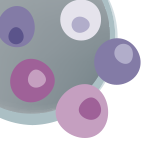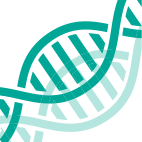Cell & Gene Therapy Commercial Insight – January 2018
Cell Gene Therapy Insights 2018; 4(1), 57-66.
10.18609/cgti.2018.008
Providing a critical overview of the sector’s commercial developments – M&As, licensing agreements & collaborations, financial results, IPOs and clinical/regulatory updates, with commentary from our Expert Contributors.

CELL THERAPY:
We’ve seen a flurry of M&A activity the last several months, which began with the acquisition of Kite by Gilead in August of 2017 for $11.9 billion. This was followed by the bolt-on acquisition of Cell Design Labs for $566 million, also by Gilead, in December 2017. We kicked off this year with the announcement that Takeda will purchase TiGenix for $620 million to get access to global rights to Cx601. In a response to the Kite-Gilead deal, Celgene swooped in to buy Juno for $9 million this past month, the second major acquisition we’ve seen in 6 months in the T-cell space. Perhaps not surprisingly so. Pipelines are maturing and technology is beginning to be validated in the blood cancer space, with not one, but two approvals in recent times, including Kymriah and Yescarta. The acquisitions of Juno and Kite leave Adaptimmune as the last major independent T-cell biotech in the USA.

GENE THERAPY:
The start of the year sees signs of progress in a couple of company’s pipelines, with GenSight getting the nod from MHRA to start its Phase 1/2 study in retinitis pigmentosa and Ultragenyx releasing positive news from the first cohort of patients with OTC deficiency treated with its AAV8-based vector in the PIONEER Phase 1/2 clinical trial. Interesting also to see the tie-up between Synpromics – an Edinburgh-based company focused on synthetic promoters – and Professor Adrian Thrasher’s clinical research group at UCL Great Ormond Street Institute of Child Health. Thrasher’s group has a well-established reputation for excellence in gene therapy for rare immunodeficiencies, so it will be worth watching for what emerges from this new collaboration.

GenSight granted clearance to begin trialing RP gene therapy in the UK
European biopharmaceutical company GenSight Biologics has been granted permission to initiate a Phase 1/ 2 study into patients with Retinitis Pigmentosa (RP) in the UK. The decision was made by the UK Medicines and Healthcare Regulatory Agency (MHRA) for the study of the company’s gene therapy for the condition, GS030 which already holds orphan designation status in the US and Europe.
Named PIONEER, the study will evaluate the combinatorial approach of the intravitreally applied gene therapy, and the wearable optronic visual stimulation device GS030-MD. The former component delivers the gene encoding for a light sensitive protein, whilst the device is intended to amplify the light signal to the modified cells.
The primary endpoint of the trial is to assess safety and tolerability, this will be evaluated via dose escalation across four cohorts of patients. Enrolment criteria includes vision not better than counting fingers; the first UK patient is expected to be dosed in the first quarter of this year.
Bernard Gilly, CEO of GenSight, commented, ‘I am particularly excited to have GS030 moving into the clinic. This represents a major milestone for the Company. For the first time ever in ophthalmology, an optogenetic approach combined with a medical device will be tested in humans. If proven safe and effective, this therapy could be transferable from Retinitis Pigmentosa to dry-AMD’.

Ones to watch
The news that MHRA has approved the CTA for GenSight Biologic’s PIONEER clinical trial places a spotlight on the company’s treatment for retinitis pigmentosa (RP). This fascinating technology comprises both a one-off gene therapy treatment and specialised optics and electronics. GS030 comprises a gene encoding a photoactivatable channelrhodopsin, delivered via a modified AAV2 injected into the eye; the company’s biomimetic goggles, when worn by the patient, then deliver light at the desired intensity and wavelength to the eye in order to stimulate the transduced retinal cells. Of course the field for gene therapy treatment of RP has been boosted by the recent approval of Spark Therapeutics’ voretigene neparvovec for biallelic RPE65 mutation-associated retinal dystrophy, but there clearly remains an appetite to bring forward new treatments for RP, and GenSight’s approach certainly has novelty!–Richard Philipson

Updates from Adaptimmune on SPEAR cell progression
Adaptimmune has announced two significant updates in the progression of their proprietary
Specific Peptide Enhanced Affinity Receptor (SPEAR) T-cell based therapies. The first is the successful manufacturing of the first batch of SPEAR cells for a patient enrolled in the company’s MAGE-A4 oncology trial. The second is an agreement penned between Adaptimmune and Cell and Gene Therapy (CGT) Catapult which will see the company utilise capacity in the latter’s manufacturing centre to produce vectors.
The SPEAR cells produced by the latest manufacturing advancement are intended for the treatment of a patient in Philadelphia, where the production facility of the batch is based. Gene edited T cells are engineered to target and destroy cancers such as bladder, melanoma, and non-small cell lung. The Philadelphia based location of the production facility, Navy Yard, has the capacity to produce therapeutic cells for 300 patients annually, with potential expansion to 1000 patients.
With regards to the CGT agreement, use of the GMP-compliant facility is guaranteed until, and beyond 2020. CEO James Noble commented, ‘We are making great strides to becoming a fully integrated cell therapy company. Our Navy Yard facility is now fully operational producing SPEAR T-cells for patients. In addition, we have vector supply into 2019, and the initiation of our own vector manufacturing capability at the Catapult facility will extend vector supply further. We will continue to work with our cell manufacturing partner PCT, now part of Hitachi, where we have dedicated space and personnel for production of our SPEAR T-cells, as well as our other vector suppliers. Having these dedicated resources both in-house and through external partnerships is essential to ensure our future success as a fully integrated cell therapy company.’

Expert Pick
Adaptimmune secures near-term manufacturing
Adaptimmune has given itself a means to support both cell processing and vector manufacturing for its extensive pipeline of TCR products, at least for the next few years. The company will manufacture T cell immunotherapies out of its own Navy Yard facility in Philadelphia and will occupy space in the Cell and Gene Therapy Catapult to manufacture vector. Adaptimmune recently announced the successful manufacture of the first SPEAR-T cells out of Navy Yard. While the company will deploy internal resources to do some manufacturing in-house, overall it will pursue a mixed strategy that will include contracting of external parties to assist with manufacturing and ensure security over supply for the long-term. – Mark Curtis

Atlas ventures launches gene therapy company Generation Bio
Biotech venture capital firm Atlas Ventures has launched a gene therapy company, Generation Bio, to develop gene therapies that do not rely on viral vectors for gene delivery. The technology behind the company is a result of co-founder Prof. Robert Kotin’s work in creating a lipid nanoparticle platform for the delivery of closed-ended DNA.
The company’s initial work will focus on diseases which affect the liver as the organ preferentially takes up the liquid nanoparticles that will be used to deliver genetic material to cells. This will migrate to the nucleus and form episomes which have high levels of expression without integrating with the host DNA. The approach could potentially bypass the issues of immune response associated with using viral vectors, as well as allowing for redosing and the variance of dose levels according to patients, something that is not possible with current gene therapy approaches.
The company has spent a year developing its GeneWave platform, and the capacity to manufacture it inhouse. It has also demonstrated the approach in animal models, showing the viability of dose dependent expression in the liver. The diseases that are being focused on currently are progressive familial intrahepatic cholestasis, phenylketonuria, glycogen storage disease 1a, and ornithine transcarbamylase deficiency.
President and CEO Geoffrey McDonough commented, ‘This is a breakthrough category of therapeutics which will continue to expand in the future. One aspect of our platform which is important to us is scale—by removing viral capsid from our manufacturing process we are increasing the scale and reducing the cost of our platform. Combined with the druglike properties of GeneWave, we aim to greatly expand the number and variety of diseases able to be addressed by gene therapy.’

Pluristem’s placental cell therapy cleared for EAP by the FDA
The FDA has made allowance for Pluristem to employ its PLX-PAD cell treatment outside of ongoing Phase 3 trials under the Expanded Access Program (EAP). This will make the therapy available to a limited number of patients who are unsuitable for enrolment in the trial.
PLX-PAD is comprised of placental cells which secrete a range of therapeutic proteins; these instigate the body’s repair mechanisms for the treatment of Critical Limb Ischemia (CLI). Symptoms include pain, non-healing ulcers and gangrene. These are targeted by mechanisms such as the growth of new blood vessels and transportation of oxygenated blood to damaged tissues.
PLX-PAD has been granted fast track designation from the FDA and is on the EMA’s Adaptive Pathways Program. Co-CEO Yaky Yanay commented, ‘This is a true vote of confidence by the FDA in our cell therapy and a landmark achievement for Pluristem and its shareholders. It gives us the ability to begin treatments using our cell product, offering treatment to certain CLI patients who have poor therapeutic options, while also collecting real-world data alongside our ongoing Phase III clinical study. We are hopeful that the FDA may also allow us to be compensated for the costs of treatment, which can support our work developing effective cell therapies for millions of patients worldwide.’

Ones to watch
Pluristem gets FDA nod for expanded access
The most severely ill critically limb ischemia patients in the United States will have an option for treatment in certain cases with Pluristem’s PLX-PAD cells. Given the high unmet need associated with the most advanced (Category 5) CLI patients, the FDA recently approved an expanded access program so these patients can receive treatment despite not qualifying for Pluristem’s Phase 3 study. Expanded access will allow for the collection of real-world data in support of marketing of the technology, and could potentially provide Pluristem some early revenue to support development. PLX-PAD is on an accelerated pathway in both the US and Europe.-Mark Curtis

AGT completed pilot run of production process for HIV immunotherapy
American Gene Technologies International (AGT) has completed the pilot runs of its automated cell processing protocol for the production of their investigatory product, AGT103-T. The genetically modified autologous T cell product which aims to functionally cure HIV, will begin Phase 1 trialling shortly.
The immunotherapeutic approach is leveraging gene editing to bolster the immune responses of infected persons to HIV. In particular, the therapy targets CCR5, a key surface protein utilized by HIV. Genetic modifications are expected to knockdown CCR5 and prevent the replication of HIV already within these cells. If successful, the approach could mitigate the need for antiretroviral drugs.
This latest accomplishment signals the successful production of a stock of the lentiviral vectors that will be modified to deliver the immunotherapy. The automated process is GMP compliant and sets AGT up for submission of an IND application to begin trialling.
On this recent update, CEO Jeff Galvin commented, ‘This product is the most complex cell therapy the industry has delivered to date, and is a further indication of the sophistication, depth and breadth of AGT’s gene technology platform for drug development. We hope to show efficacy for our HIV treatment this year and add several infectious disease therapeutics to our pipeline in 2019, while continuing to develop our monogenic disease portfolio and our gamma delta T cell immuno-oncology programs.’

Positive results from Ultragenyx’s urea cycle disorder gene therapy trial
Ultragenyx has released encouraging data from their ongoing trial of AAV mediated gene therapy DTX301, for the treatment of ornithine transcarbamylase (OTC) deficiency. Patients with the genetic urea cycle disorder are being treated in a Phase 1/ 2 study, from which these latest results have been announced.
OTC is characterised by the lack of a liver enzyme which detoxifies ammonia, causing a build up which can result in adverse symptoms. Efficacy in the three patients that have been treated to date is therefore measured by monitoring ureagenesis levels, which was below normal in all patients at the outset. 2 of the 3 experienced increases in ureagenesis levels at 12 weeks post treatment. None of the patients experienced any serious adverse events related to the therapy. Future patients in the trial will receive a higher dose of the intravenously applied DTX301, pending approval of the data monitoring committee.
CEO of Ultrgenyx Emil D. Kakkis commented, ‘We are encouraged by these initial data showing activity with our AAV8 vector in patients in the first, lowest-dose cohort. Patient 1 showed a normalization of ureagenesis that was maintained through 12 weeks, and we view this initial efficacy data as clinically meaningful and a promising indication of the potential of DTX301. Based on the data to date, we expect to be able to move to the higher-dose second cohort pending the data monitoring committee’s review of the 12-week safety data for all three patients in this cohort, and data from this second cohort should be available in the second half of 2018.’

Expert Pick
Ultragenyx continues to make progress with its pipeline, with the release of positive data from the company’s phase 1/2 study in ornithine transcarbamylase deficiency (OTC). OTC deficiency is a rare X-linked genetic disorder that leads to excessive accumulation of the neurotoxin ammonia, giving rise to symptoms that include vomiting, refusal to eat, progressive lethargy, and coma. The benefits of a potential new treatment are relatively straightforward to measure by looking at changes in ureagenesis, and the results observed to date with DTX301 – an AAV8-based treatment picked up by Ultragenyx following its merger with Dimension Therapeutics – look encouraging. In the first cohort of 3 patients, ureagenesis normalised in the first patient and improved in the third patient, although no benefits were seen in the second patient. As the safety profile looks acceptable, the company will likely be able to move to the next dose level, although this decision required independent review.- –Richard Philipson

Synpromics and UCL to collaborate on synthetic promoter development for gene therapies
Edinburgh-based Synpromics has entered into a collaboration with the clinical research group of UCL Great Ormand Street Institute of Child Health’s Prof. Adrian Thrasher. The partnership will work on developing gene therapies to target hematopoietic system disorders.
The output of the collaboration is expected to be synthetic promoters which can be applied to gene edited cells for the delivery of therapeutic proteins. Immune system cells in particular are being investigated for gene editing, these include myeloid, lymphoid, and microglia cells. The promotors produced would potentially be transferrable to CAR-T therapy applications.
On this latest expansion of the company’s gene therapy portfolio, CSO Michael Roberts commented, ‘We are tremendously excited to be working with Adrian Thrasher and Dr Giorgia Santilli from UCL. Our technology is particularly suitable for developing gene and cell therapies for blood-based disorders. We’re able to design promoters that are active in any cellular lineage of the haematopoietic system by leveraging the subtle changes in transcription profiles that are evident in the different cell populations present in the blood. By embarking on this collaboration, we aim to develop a portfolio of promoters that have broad applications in multiple disease indications.’

Celgene to acquire Juno Therapeutics
Celgene will acquire Juno Therapeutics in a $9 billion merger. The move will add Juno’s leading CAR T therapeutics to the Celgene portfolio, including JCAR017 which is hailed for approval in 2019. The merger also expands Celgene’s manufacturing capabilities with facilities in Seattle and Bothell available to leverage. The full acquisition is expected to close this quarter.
Celgene CEO commented, ‘The acquisition of Juno builds on our shared vision to discover and develop transformative medicines for patients with incurable blood cancers. Juno’s advanced cellular immunotherapy portfolio and research capabilities strengthen Celgene’s global leadership in hematology and adds new drivers for growth beyond 2020.’

Editas and Adverum extend AAV/ CRISPR collaboration period
Editas Medicine and Adverum Biotechnologies will extend their existing collaboration agreement for a further three quarters of 2018. The companies are exploring the use of Adverum’s next generation AAV vectors for the mediation of Editas’ gene editing CRISPR- based technologies in the context of inherited retinal diseases. As part of the agreement, Editas also holds a number of options which are deployable until August 2020.
Editas CEO Katrine Bosley stated, ‘This collaborative work brings together our best-in-class genome editing platform and Adverum’s industry-leading vectors with a goal of developing new medicines for patients with retinal diseases. Adverum has a distinctive technology and significant ophthalmology experience. Expanding our relationship is reflective of our strategy to continue investing in our platform in a highly selective manner.’

Sorrento expands internal manufacturing capacity with Roger Williams option
Sorrento Therapeutics have signed an agreement to exclusively manage and operate the Cellular Immunotherapy and Gene Therapy Facility at Roger Williams Medical Centre as part of their strategic expansion of internal manufacturing capacity.
This latest move brings Sorrento’s facilities to a total of 5, across both the east and west coast of the USA. The company estimates that it can produce CAR-T treatments for at least 300 patients per annum. This is considered sufficient to support lead candidate CD38 through to the regulatory approval stage. During this time, Sorrento also plans on expanding the existing sites in San Diego and Rhode Island, both of which focus on CAR-T therapeutics.
CEO Henry Ji stated, ‘We decided a long time ago that internal manufacturing capability would be a strategic asset for Sorrento. Many biotech companies learned the hard way the risks of entering into a new therapeutic area without internal manufacturing capabilities and having to compete with other companies for limited numbers of third party manufacturers. With all the recent activity in the CAR-T space we are extremely pleased to be in control of our own GMP manufacturing and not have to rely on outside parties for our supply needs for our current and future development work.’

FUJIFILM to manufacture REGENXBIO AAV gene therapies
REGENXBIO has entered into an agreement whereby FUJIFILM Diosynth Biotechnologies will manufacture the company’s lead gene therapy candidates RGX-314 and RGX-501 during late-stage trials and early commercialization. ‘
The agreement grants REGENXBIO guaranteed capacity for manufacture in FUJIFILM facilities for three years, with the option to extend. This move expands REGENXBIO’s production capabilities by leveraging FUJIFILM’s sites, all of which are compliant with global regulatory standards. REGENXBIO has the internal capacity to produce 200L of the NAV AAV product at present – about a tenth of the FUJIFILM scale of production. The company plans to develop its own capacity, as well as make links with contract manufacturing organizations, in tandem with the FUJIFILM agreement.
Senior VP Curran Simpson, of REGENXBIO, said: ‘We are excited to enter into this partnership with FUJIFILM, which secures access to capacity and resources that will enable us to produce our lead product candidates at commercial scale using processes developed at REGENXBIO. By aligning our agreement with FUJIFILM to our internal capabilities, we believe we will be well-positioned to meet the NAV AAV production requirements for our current lead product candidates through early commercialization, and to support new, emerging product candidates that may enter our pipeline.’

Takeda to acquire cell therapy firm TiGenix in a €520 million deal
Japanese firm Takeda will acquire biotech TiGenix in a €520 million cash deal that hinges on European approval of the latter’s stem cell therapy for Crohn’s disease, Cx601.
Cx601 is an off-the-shelf therapy for the treatment of perenial fistulas that arise as a result of Crohn’s disease; the therapy employs the use of allogeneic expanded adipose-derived stem cells. Results from the trial saw approximately half of the patients achieve remission. Takeda had already bought the ex-USA rights to the therapy in 2016 for $25 million. This latest, encompassing deal will also give Takeda control of the USA efforts for the therapy where a Phase 3 trial is ongoing. Recommended by the European Medicine’s Agency’s (EMA) drug review group for approval last month, Cx601 is expected to reach markets in the first quarter of this year – a condition of the Takeda buyout. The deal additionally rests upon the condition that there is an “absence of a material adverse effect occurring at any time after the date of the announcement.”
The deal prices TiGenix’s shares at €1.78, a generous 82% premium over its closing price immediately prior to the deal’s announcement. The company has struggled to maintain a €1 share price over recent years, thus the deal will prove very profitable for most shareholders.


FIT Biotech appoint new CEO, Erkki Potential
FIT Biotech, a company working on gene therapy vectors, has appointed longstanding board member Erkki Peterson as their new CEO. Former CEO James Kuo left with immediate effect following the announcement of the news.
Peterson has been a FIT Biotech board member since 2002, most recently serving as Vice Chairman. He is also the owner and CEO of a biotech investment company. His background is in economics, in particular financial administration and investments.
Current board chairman Rabbe Slätis commented, ‘Our aim is to license our drug candidates to partners who have the required knowledge to carry out clinical research, marketing authorisation applications and commercialisation of the drugs. Erkki Pekkarinen has long experience in our industry and in the financial sector. This will bring important added value to the operations management and the commercialisation of our projects.’
Written by Haaniah Hamid, Cell and Gene Therapy Insights

This work is licensed under a Creative Commons Attribution- NonCommercial – NoDerivatives 4.0 International License.



